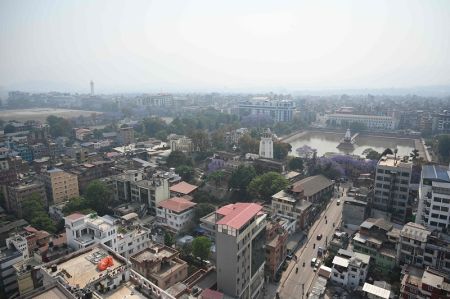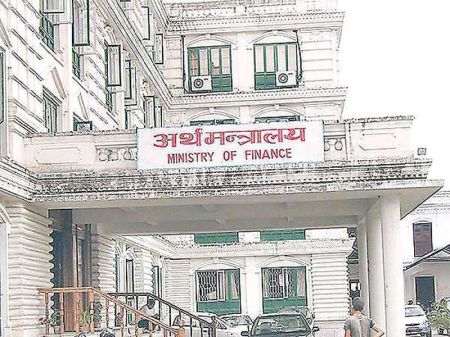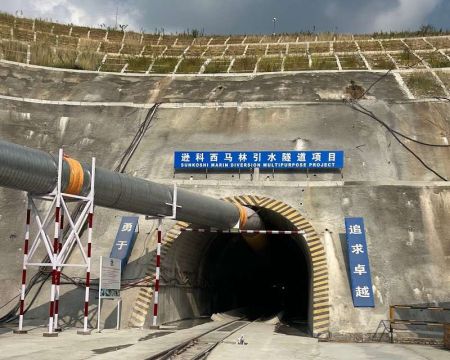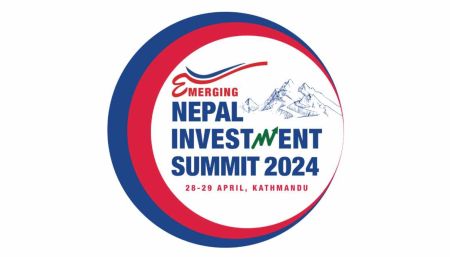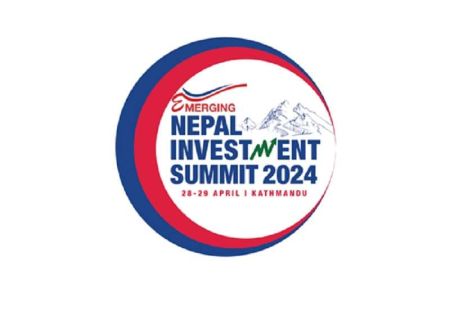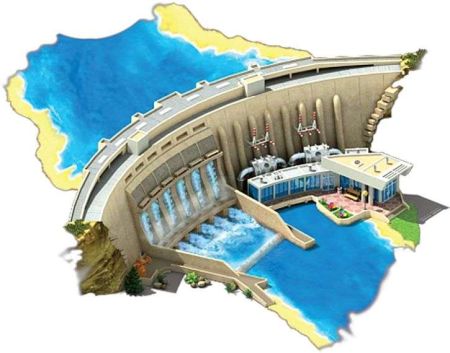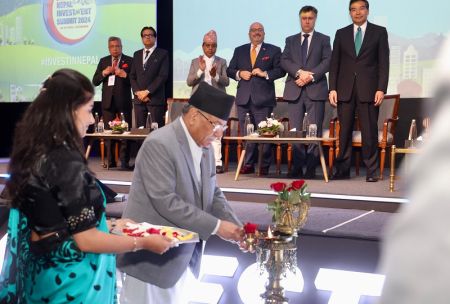The third edition of the Money Expo for 2013 is being held in the capital at the end of this month. Aiming to promote investment opportunities and wealth protection strategies, this expo is the largest finance and investment show in Nepal. An interaction programme ‘The possibilities of Commodity Market in Nepal’ was conducted by New Business Age on September 19 as headway to the Expo. Experts from the commodity market presented their opinion on the current status of this sector. Excerpts:
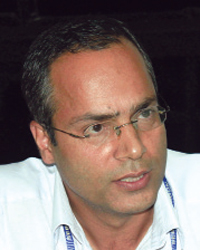
Paristha Nath Poudyal
Director, Securities Board of Nepal (SEBON)
• The budget of 2070/71 has fixed that the regulation of the commodity market will be done by the Securities Board of Nepal (SEBON). For implementing this decision we have received a working procedure from the Ministry of Finance. We have been directed to submit an ordinance or some legal works to the ministry by mid November.
• We have already completed two levels of discussion for this. We are improving the market first and then regulating it.
• We have been studying the regulatory process of various countries like India, Singapore, Hong Kong, United Kingdom and others. We will develop the regulation process according to the context of our country by discussing with stakeholders and studying all other countries’ regulations.
• The regulatory body is just a facilitator and we will work accordingly.
• Rather than the board, the issues related to regulations should be a matter of concern to the government and it should not delay the task.
• Training for investors is essential. This year we have planned to establish the ‘Capital Market Research and Training Institute’. This effort is meant for developing the skills of investors.

Dipendra Khatiwada
Managing Director, Mercantile Exchange Nepal (MEX)
• The major necessity of today’s market is regulation. We have been requesting the government for the formation of regulations from a long time. Regulations develop assurance and build trust among the public.
• Regulations are not complete in themselves. They should be formed in such a way that they can support exchange companies as well as develop credibility among people.
• Gold imported to Nepal is not of high quality. Though the gold is said to be of triple line, we should examine whether they are really of that standard. Such checks develop credibility in customers but Nepal does not have such facilities.
• We do not have the mechanism to verify the quality of goods. If those mechanisms are in places, we can import any goods. Laws should be practical and only goods that can be verified should be imported.
• There is no investment friendly environment in this market. The willpower of investors has decreased. So the establishment of a warehouse in Nepal is not possible for at least 5 years. Only the regulatory body can bridge the gap.
• Other financial instruments can be promoted in this condition. Commodity is itself a financial instrument. Hazing platform, price discovery and price dissemination can be developed in the form of financial instruments.
• Without the will power of the government, people from the outside the government cannot do anything. The government is unable to decide on the issue of formation of regulation for the commodity market which has created problems.
• We are dealing with exchanges only in our market. Supply and distribution is not possible in such a situation. In international practice too it is seen that in the exchange process, 5 per cent win and 95 percent lose. This reality should be realized by investors.
• There are frequent transactions happening in the market. Though the quantity has decreased, the quality of transactions has increased and increase in quality is more essential than quantitative increment.
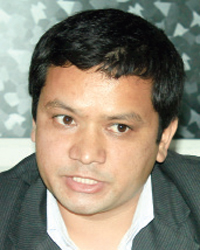
Ram Sharan Upreti
General Manager, Everest Commodities Limited
• The problems of the commodity market have been divided into three parts. The foremost problem is the failure of the government to formulate policies; secondly, there is no uniformity in the working policy of commodity exchange companies; and thirdly, the investors are not properly educated about this market.
• Concerned stakeholders have been discussing issues of the commodity market from the very beginning and stakeholders have been raising their voice regarding this issue. But the government is not showing its concern on this matter. The commodity market has a significant position but the government has not raised any issue regarding this market at discussions of the economy of the country.
• The failure of conducting a proper exchange operation module is also a problem in this market. There are 10 exchanges operating in the market with different trading modules. Presently, there are two-three types of trading module in Nepal. These modules have different trading and pricing processes which has cause confusion among customers. An appropriate module for the market has not been identified yet which has minimized scope of new opportunity for investors.
• Lack of proper awareness among investors on the commodity market is also a major problem in this sector. This market has been famous as a glamorous sector. Because of the same reason, the market reached its peak in a short period and did not take long to fall. The people have just understood it as an exchange market.
• People who do not have proper knowledge come to this market and because of them, the market loses credibility.
• The commodity market has been in operation for six years. But till date, real investors and organizational investors have not entered the market. Exchange companies have not been able to do something significant in the derivative mechanism.

Santosh Pradhan
Chairman, Nepal Derivative Exchange (NDEX)
• Commodity exchange is not complete in itself. There are various factors responsible to run this market smoothly. In the context of Nepal, actual commodity exchange has not been practiced yet.
• An appropriate commodity exchange friendly eco-system is essential for this. The laws and physical infrastructure favourable to this market should be maintained. We must be able to access agricultural products in the international market by storing it in a facilitated warehouse.
• The government should at least bring an ordinance to maintain regulations and issue license to exchanges and brokers.
• Exchange companies should be specialized on the basis of their operation procedure, software, human resources and other measures of standardization. Unless this is done, all exchange companies have their own term of standards and they move forward with different schemes.
• Transaction through warehouses can be the baseline for systematic initiation in this market. In the medium level this market can be developed through big financial institutions, and stakeholders and their trade risks can be addressed through the commodity market.
• Nepal can be developed as an international financial center. The trade of gold and silver can be done in Nepal in bigger investment. National as well as international investors can invest in this and manage their portfolio.
• Nepal is not in condition to run 10 commodity exchange at present. Maximum two exchanges would be enough.
.jpg)
Bijesh Shrestha,
President and Managing Director, Asian Derivative Exchange (ADEX)
• Everything has a fixed life cycle and so does a commodity market. The commodity market was established in Nepal in 2006 AD and during 2009-2011, it attracted a lot of investors. This expanded the market by mid 2012, it became mature. Anything that experiences drastic growth in a short period of time does not last long and the same thing happened to the commodity market. The market has completed a life cycle and it has to revise itself now with some improvements in regulations and other aspects.
• Only paper transactions are being done in the commodity market till date. The market grew drastically and crashed immediately because of which customers are losing trust. Trust can be regained by forming a strong base. Similarly, improvement in the capital market and the real estate market is also essential for improving this market.
• Though there are 10 exchange companies operating in the market, the number of investors does not exceed from 50-60. This shows decrement in the number of investors.
• The regulatory body should pave the way for regulations and the exchange companies should follow it. This market should include transactions of exchange index and Nepse index to attract investors.

Abhisek Gautam
General Manager,Commodity Futures Exchange (CFX)
• There are more investors observing loss than earning profit in the commodity market. The number of customers in this market has decreased compared to the previous year. This market can observe negative effects which are created because of mismanagement of investors.
• The commodity market lacks novelty at present. We are using the same old things just with some modification. There have been change in the marketing procedure but production and market is the same. The numbers of investors are decreasing because of security issues in the market.
• The expansion and recession in the commodity market is directly proportional to the economic cycle. The market has been experiencing recession these days but it was booming some months ago. Everything has its own pace but the commodity market rose exceptionally fast and is experiencing downfall now.
• Some national and international organizations have been boosting agriculture production, commercialization and pricing in Nepal. Those agriculture products should be included in this market but we are failing to do so as the act related to the warehouse has not been formed yet. Also not formed are shares, treasury bills and other financial instruments that would make the market more effective.










